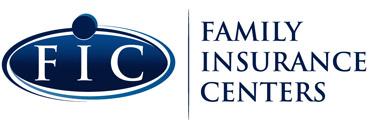Types of Car Insurance

Car insurance offers financial protection if you are involved in a road accident. In most places, auto insurance is mandatory and available in various types. Each insurance option provides compensation for specific damages.
Learn more about the main types of auto insurance coverage below.
1. Liability Coverage
Most States require all vehicles to have auto liability coverage. The state will typically determine the minimum liability coverage amount that every driver must legally have. You could choose the bodily injury liability to cater for another person’s injuries if you caused the road accident. Another option is the property damage liability to cater to another person’s property damage.
2. Uninsured and Underinsured Motorist Coverage
Some drivers are on the road without any insurance coverage at all. Others have insufficient coverage that can’t pay for all damages arising from an accident. If the uninsured or underinsured motorist hits your vehicle, you won’t get compensation from their insurance. Even if you try to get compensation from your policy, the compensation may not be enough to pay for all injuries.
To protect yourself, you may want uninsured or underinsured motorist coverage to cater for any damages or injuries that these drivers cause. The insurance covers your injuries, passengers’ injuries, and any damage to a vehicle. You can get this coverage on a separate policy or combine it with other insurance coverage. Also, you can get compensation if you are a victim of a hit-and-run accident.
3. Comprehensive Insurance
Comprehensive insurance pays for car damages if your vehicle is involved in a non-collision-related incident. The incident can be fire, theft, hail, or hitting an animal.
Since comprehensive coverage is usually optional, you can add it to other coverage, such as liability insurance. However, if you used financing from a lender to purchase your car, the lender might require comprehensive auto insurance coverage.
A comprehensive insurance policy is ideal for drivers who live in an area prone to natural disasters, vandalism, or theft. However, the insurance will not pay for any damage to your car due to a collision. The policy also won’t cater to medical expenses and legal fees.
4. Collision Insurance
If your vehicle sustained damages in an accident with an object or another vehicle, collision insurance could help pay for replacement or repair. Collision insurance only pays for your vehicle and not the other driver’s vehicle.
Keep in mind, this insurance won’t cover medical bills arising from the collision accident. This type of insurance is usually necessary for people who get financing or leasing to buy their vehicle.
Collision insurance typically allows you to set your desired deductibles. Choosing lower deductibles increases your premiums and vice versa. Also, collision coverage has a maximum limit, the highest amount the policy can pay towards a single claim. Usually, the limit is the vehicle’s current market value.
5. Medical Payments Coverage
If you are involved in a road accident, medical payment coverage can offset the cost of medical expenses for you and your passengers. The coverage kicks in even if you are the one who caused the accident. However, this option is not available in all states, with some preferring personal injury protection coverage instead.
Medical payments coverage only makes sense if you can’t pay for your medical bills after a road accident. If you have health insurance, it can help pay for your injuries.
Common medical payment coverage includes doctor visits, nursing services, care, surgery, and ambulance fees. Also, if somebody loses their life during an accident, medical insurance coverage can help pay for funeral expenses.
Get Auto Insurance
Once you have settled on the appropriate type of insurance, you need to select the best insurance company. Family Insurance Centers provide exclusive insurance policies to meet all your insurance needs. Contact us for more information.
